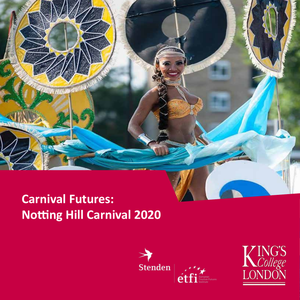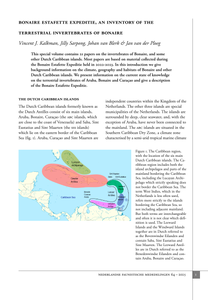This paper explores the social distance between local residents and African–Americans who havesettled in Ghana since the 1960s. Data generated from in‐depth interviews suggest the African–American expatriates felt their proximity to collective slave memory or particularly slavery heritageconferred on them certain rights to exclude local residents who are more susceptible to forgettingthe past. By appropriating traces of the past, the African–American expatriates provide a range oftourism services, albeit to visitors they believed subscribed to socially constructed meaningselicited at slave sites. The study suggests explicit recognition of African–American expatriates inthe levels of contestations that result from slavery‐based heritage tourism
LINK
This study uses Lukes' (2005) three-dimensional power to explore the ability of traditional chiefs to influence slavery-based heritage tourism decisions. Traditional chiefs of five former slave communities in Ghana were in-depth interviewed about their efforts to harness community development through tourism and perceived influence in tourism decision-making process. Results indicated that despite being guardians of tourism resources, traditional chiefs perceive themselves to be powerless in affecting management decisions because of governmental control of local community institutions. They, however, exert considerable influence on tourism activities by either avoiding engagement or acting as community vanguards to discredit the interests of other stakeholders. Interview data support the theoretical tenets of Lukes' (2005) three-dimensional view of power, and the need to pursue cooperative tourism planning is discussed
LINK
Traveling to places associated with death is not a new phenomenon. People have long been drawn, purposefully or otherwise, towards sites, attractions, and events linked in one way or another with death, suffering, violence, or disaster. War-related attractions, though diverse, are a subset of the totality of tourist sites associated with death and suffering. This article aims to assess how "dark" tourism may play a role in leveraging tourism in Palestine, which has largely relied on pilgrimage tourism in the past. This article investigates the potential for developing this form of tourism, since Palestine has been undergoing death, suffering, violence, or disaster through political tension and instability since 1948 and arguably for a generation earlier, but has not yet developed a strategy for tourism development that considers this type of tourism.
MULTIFILE

Epistemological relativism in tourism studies has been conceivably paralyzed by the concept of a, or, the "paradigm." In this review article, Platenkamp metaphorically identifies these paradigms with the islands that Odysseus visited (all those centuries ago) during his well-recorded journey to Ithaca. In this context, therefore, Ithaca is changed (by Platenkamp) from being just an idyllic Greek homeland into a contemporary, hybridized world like-in our time-of the multilayered network society in Africa of the capital of Ghana, Kumasi. The basic question for Platenkamp, then, is that of how tourism studies researchers can (or ought?) leave their safe islands (i.e., their paradigms) and organize their own paradigm dialog (after Guba) with others around them on their uncertain and risky voyage to Kumasi. In an attempt to clarify this vital kind of dialog, Platenkamp introduces Said's principles of reception and resistance, but also focuses on the distinction between different modes of "knowledge production" that have been introduced into the social sciences since the 1990s. In this light, to Platenkamp, the uncertainty of this ongoing/unending epistemological quest remains crucial: to him, all (almost all?) believers in a, or any, paradigm within tourism studies are unhealthily "overimmunized" by the tall claims and the perhaps undersuspected strategies of the particular "paradigm" they follow. (Abstract by the Reviews Editor).
MULTIFILE

Purpose: This paper aims to present the findings from a European study on the digital skills gaps in tourism and hospitality companies. Design/methodology/approach: Mixed methods research was adopted. The sample includes 1,668 respondents (1,404 survey respondents and 264 interviewees) in 5 tourism sectors (accommodation establishments, tour operators and travel agents, food and beverage, visitor attractions and destination management organisations) in 8 European countries (UK, Italy, Ireland, Spain, Hungary, Germany, the Netherlands and Bulgaria). Findings: The most important future digital skills include online marketing and communication skills, social media skills, MS Office skills, operating systems use skills and skills to monitor online reviews. The largest gaps between the current and the future skill levels were identified for artificial intelligence and robotics skills and augmented reality and virtual reality skills, but these skills, together with computer programming skills, were considered also as the least important digital skills. Three clusters were identified on the basis of their reported gaps between the current level and the future needs of digital skills. The country of registration, sector and size shape respondents’ answers regarding the current and future skills levels and the skills gap between them. Originality/value: The paper discusses the digital skills gap of tourism and hospitality employees and identifies the most important digital skills they would need in the future.
MULTIFILE
Carnival Futures: Notting Hill Carnival 2020 is a King’s Cultural Institute project led by Nicole Ferdinand (Culture, Media and Creative Industries at King’s College London) which sought to engage cultural organisations and other stakeholders in planning for the future of the Notting Hill Carnival. The content of this report is intended as a contribution to current research and to identifying future directions for the development of the Notting Hill Carnival. The material and views expressed are produced by various stakeholders in a series of workshops.
DOCUMENT

The Caribbean Netherlands are dealing with a situation where imported vegetables and fruits are mostly imported and hardly affordable. This leads to consuming unhealthy food and high obesities rates as a consequence. A lack of good agricultural practices with regard to water-smart and nature inclusive agriculture, as well as limited coping capacities to deal with hazards and climate change, results in very limited local production and interest. Initiatives that focused only on agrotechnological solutions for food resilient futures turned out to be ineffective due to a lack of local ownership, which jeopardizes sustainability. Moreover, the 'green' and 'blue' domains are not seen as attractive career perspectives among youth, hampering a bright future for those domains.
DOCUMENT

This article focuses on engagements with elephants in diverse contexts, inquiring why some scholars are indifferent or even actively opposed to discourses that emphasise elephant suffering. In order to address this question, this article will explore three interrelated streams within social science: one that criticises conservation as an elitist, neo-colonial enterprise; one that is preoccupied with the social construction and cultural interpretation of natural phenomenon; and a third sometimes referred to as the new conservation science that focuses on economic valuations of the benefits nature, viewing “nature is a warehouse for human use.” https://doi.org/10.1080/13880292.2016.1204882 LinkedIn: https://www.linkedin.com/in/helenkopnina/
MULTIFILE

This special volume contains 21 papers on the invertebrates of Bonaire, and someother Dutch Caribbean islands. Most papers are based on material collected during the Bonaire Estafette Expeditie held in 2022-2023. In this introduction we give background information on the climate, geography and habitats of Bonaire and other Dutch Caribbean islands. We present information on the current state of knowledge on the terrestrial invertebrates of Aruba, Bonaire and Curaçao and give a description of the Bonaire Estafette Expeditie.
DOCUMENT
